Introduction
ASEAN youth, defined as individuals aged 15 – 35 years, are at a crucial stage of their life development and are particularly vulnerable to the disruptions caused by COVID-19 pandemic. On the positive side, the youth have a critical role to play in building back better and preventing future pandemics by addressing the root causes—biodiversity loss and climate change—that have led to increased emergence of infectious diseases.
In commemoration of ASEAN Day on 8 August as well as International Youth Day on 12 August, and consistent with the adoption of the ASEAN Youth in Climate Action and Disaster Resilience Day on November 25, the ASEAN Secretariat, through its Education, Sports and Youth Division and the Environment Division, in collaboration with the ASEAN Foundation, the International Federation of Red Cross and Red Crescent Societies (IFRC), and the ASEAN Centre for Biodiversity (ACB) through its ASEAN Youth Biodiversity Programme (AYBP) supported by the European Union, organised a youth-led Interactive Webinar Series “ASEAN Youth and COVID-19: Success Stories and the Way Forward”. The webinar series was designed to:
- raise the profile of ASEAN youth in driving the fight against COVID-19;
- highlight the interlinkages between unsustainable use of biological resources and its consequences on human health, so as to mainstream biodiversity considerations into ASEAN’s pandemic response; and
- explore the role of youth in addressing socio-environmental issues as stewards in building back better in ASEAN.
Webinar Series Design
As a cross-sectoral initiative, the #ASEANYouth webinar series explored complex multi- disciplinary issues, offered insights on mobilising youth support and ultimately, generated recommendations to expand youth participation in ASEAN’s comprehensive recovery efforts across sustainability and social fields. These outcomes and recommendations will be reported to the youth and environment sectors of ASEAN.
The series featured four episodes:
| Episode | Date | Title | Description | Recording |
| 1 | 27 Jul 2020 | #ASEANYouth at the Forefront of COVID-19 Response | Highlighted youth-led efforts in responding to COVID-19 impacts | https://bit.ly/aseanyouthwebinar1recording |
| 2 | 24 Aug 2020 | #ASEANYouth and the Wise on Resilience in Adversity | Intergenerational exchange of knowledge between the youth and the wise on being adaptive and resilient in changing times | https://bit.ly/aseanyouthwebinar2recording |
| 3 | 28 Sep 2020 | #ASEANYouth Getting Ready for the New Normal | Explored the role of youth entrepreneurship and innovation in the new normal | https://bit.ly/aseanyouthwebinar3recording |
| 4 | 30 Nov 2020 | #ASEANYouth Building Back Better | Culminating episode provided a platform for a Dialogue between key ASEAN decision-makers and the youth, around “How might youth be stewards of building back better and preventing future pandemics?” | https://bit.ly/aseanyouthwebinar4recording |
| 4a | 23 Nov 2020 | Preparatory Workshop for the 4th episode | Invite-only workshop for 50 ASEAN youth to discuss and curate questions to ask decision-makers and policy implementers in ASEAN at the 4th episode Dialogue. | N/A |
Summary of Key Messages and Next Steps
Overall, it was clear from the webinar series that young people in ASEAN are greatly affected by the pandemic in the short and long term, but more important than that; ASEAN youth are eager and well equipped to contribute to building back better. The series showcased examples of how, pre-pandemic, young changemakers have already been building a resilient ASEAN, while during the pandemic, responding innovatively to alleviate community needs. ASEAN youth are calling for decision-makers to better recognise their vital role in ASEAN’s comprehensive recovery framework, and to support the youth accordingly, such as through policy changes or youth engagement programmes, to allow them to contribute more meaningfully.
The following recommendations and key messages from the #ASEANYouth Interactive Webinar Series will be reported to the ASEAN Working Group on Nature Conservation and Biodiversity (AWGNCB), the ASEAN Working Group on Environmental Education (AWGEE), and the Senior Officials Meeting on Youth (SOMY) for their consideration in the development of their respective work plans. Further work could include identifying specific avenues within the respective sectoral plans to actualise some of the recommendations of the youth.
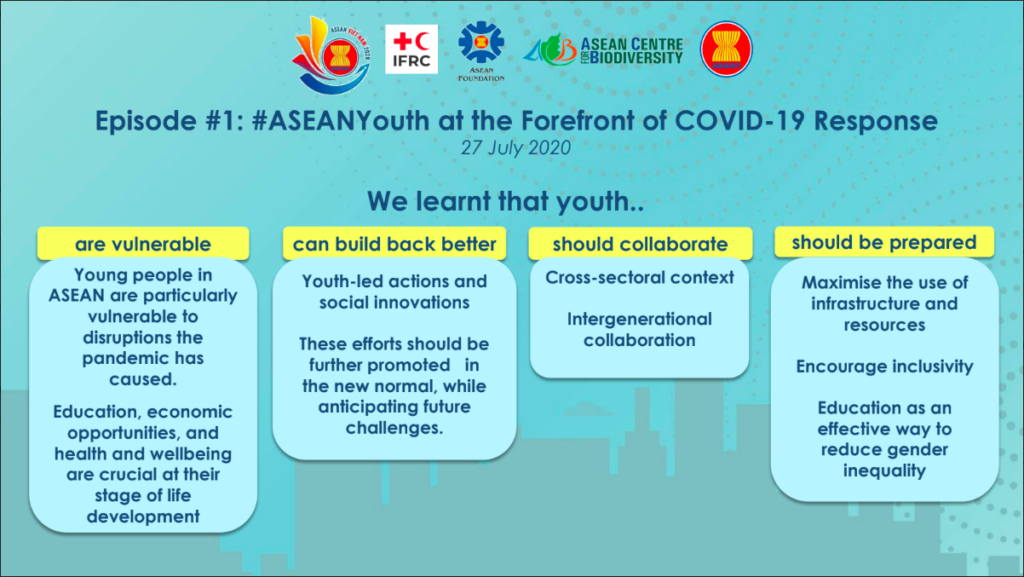
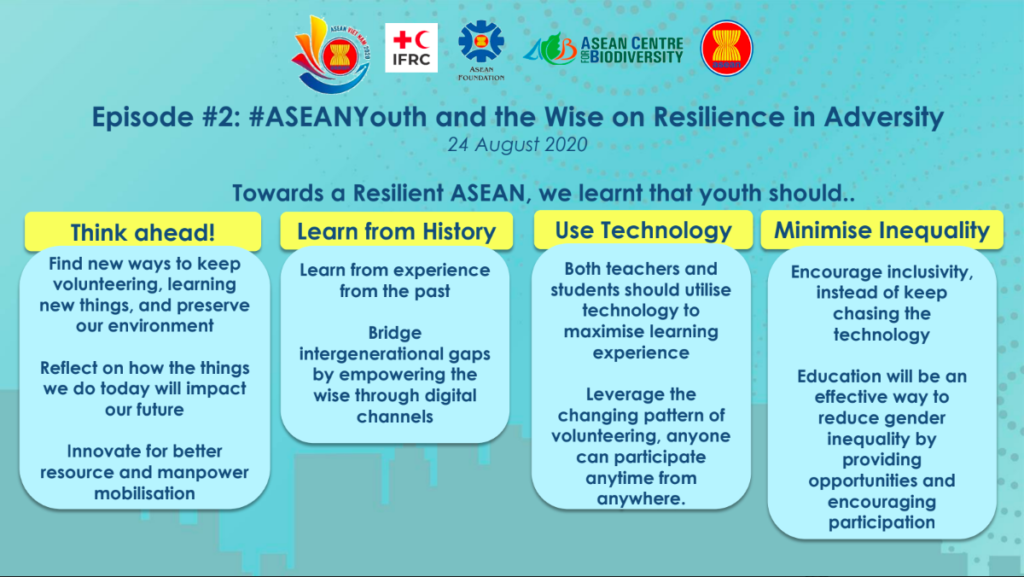
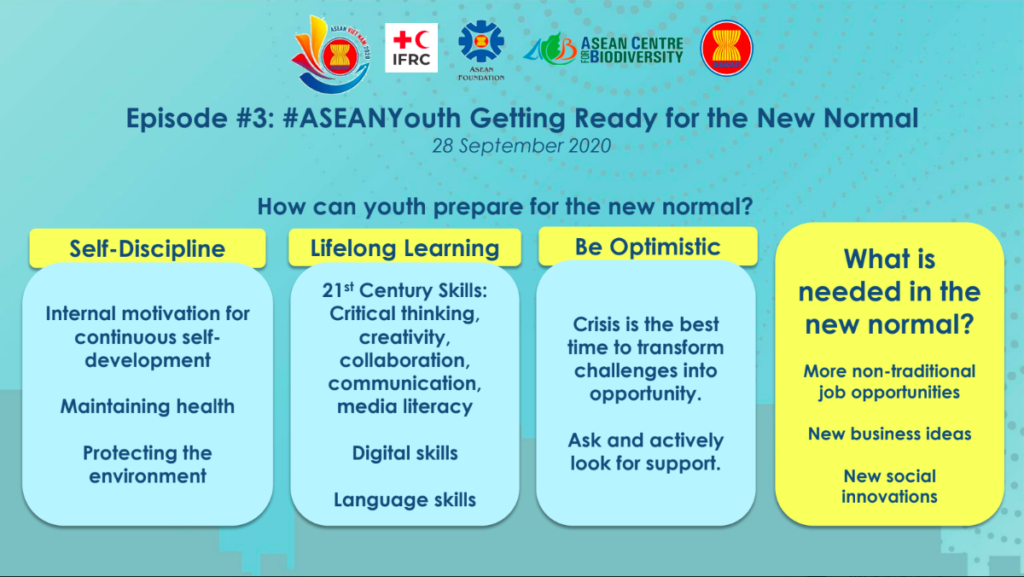
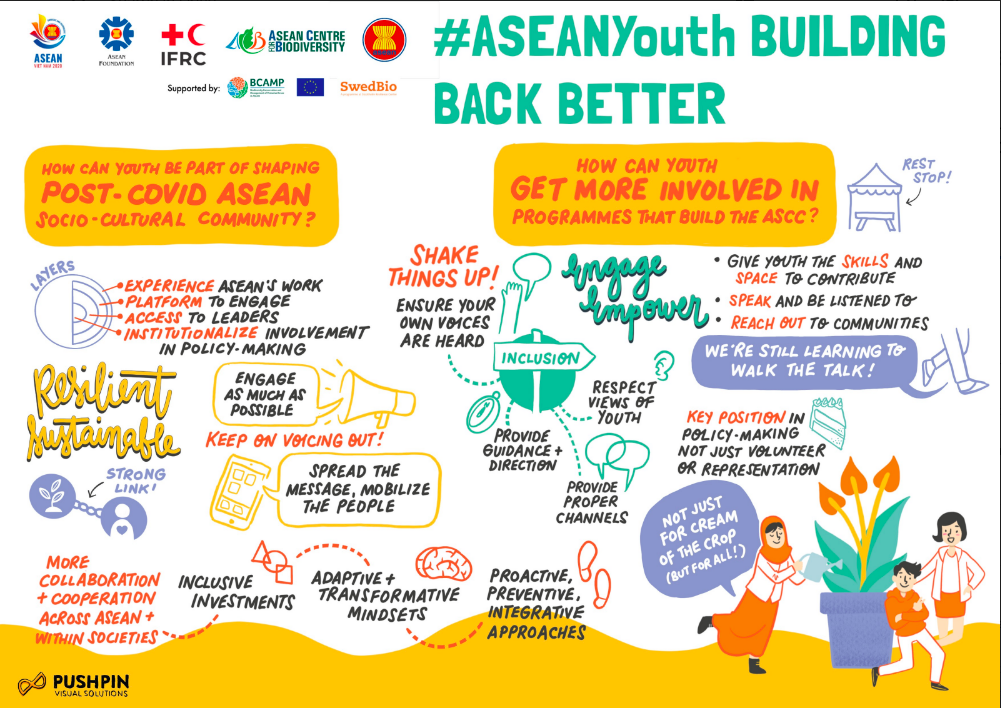

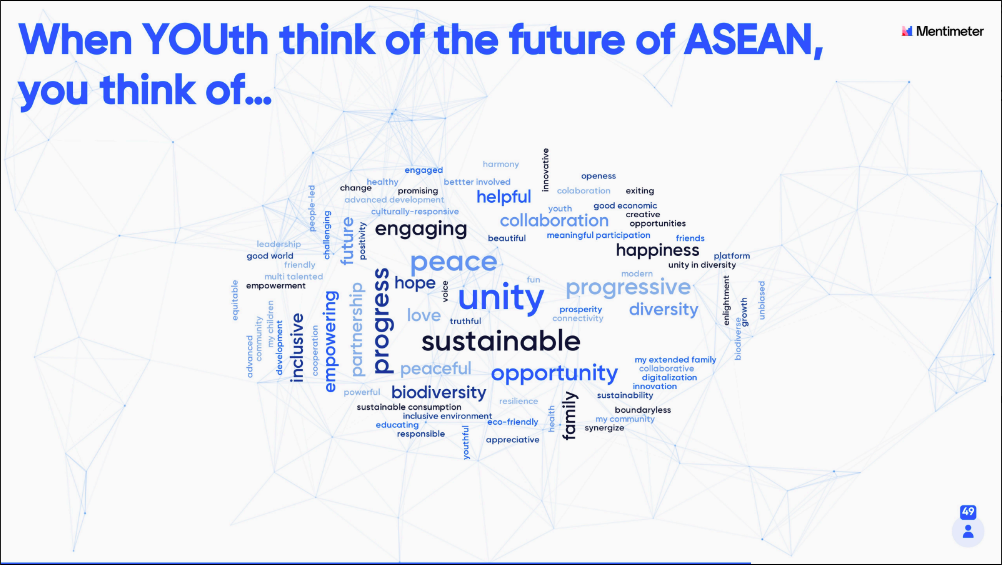

Recent Comments